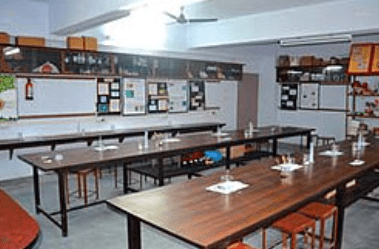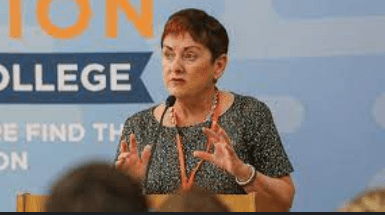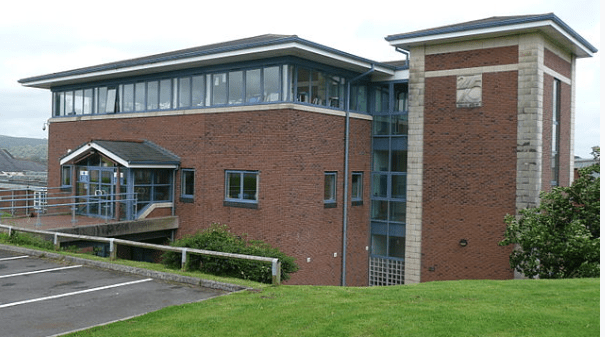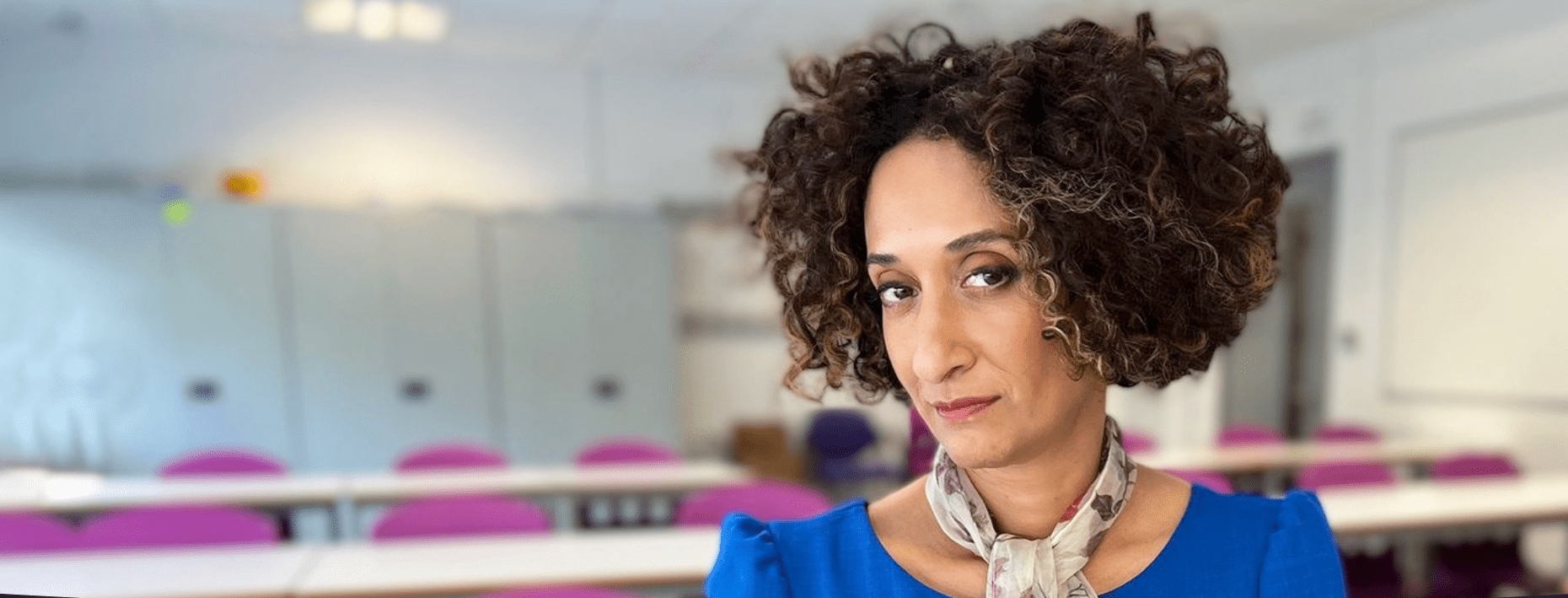by Joe Langabeer
A recent ITV documentary (May 22) on the Michaela School in Wembley Park, North London, suggested that the head teacher, Katharine Birbalsingh, managed the ‘strictest school’ in the United Kingdom. This might chime with the ideas of the likes of Liz Truss but the labour movement must question the thinking that underpins the methods of running this school.
The documentary was a propaganda piece to promote the school and there was little criticism from the programme makers, producer Nell Butler singing its praises. “It turns out there is something called warm-strict”, he said, “Mary Poppins knew all about it. Michaela Community School is awash with it. Children accept the rules because they know the adults want the best for them. The teachers enforce the rules because they care about the children. Hard work is underpinned by respect, affection and humour”.
It all sounds good, but the programme raised some important issues for teachers, and the situation is far more complicated than the programme makers claim it to be. Teaching should never have a ‘one size fits all’ approach; each child should be catered for by whatever different strategies a teacher can deploy in the classroom.
The documentary pretends to be balanced, suggesting that although the school has a strict system, it delivers some of the best results in the country. A New Statesmen, journalist for example, posed the question, is the headteacher a “visionary or deluded demagogue?” coming down “somewhere in between”.
How big are the class sizes? What about selection?
But what the programme did not explore, bearing in mind that the government has thrown lots of money at ‘free’ schools, is how Michaela’s pupil-teacher ratio compares to other local schools. How big are class sizes? Is the admission policy selective, bearing in mind that a lot of academy and ‘free’ schools use a heavily-disguised selection policy to keep out the most challenging and less able pupils? Is the school richer than normal in resources like books, support staff and IT? None of this is analysed.

The methods of the school are hidden behind a right-wing ideology of ‘traditionalism’ against ‘progressivism’ and in the documentary, the terms are constantly used, with the suggestion that the latter gets in the way of authentic learning.
The documentary showcases the school rules, which act as a kind of ideological underpinnings for how they think an education system should run. The students must arrive at 7:55 am and they line up before entering the school. They must always make eye contact with the teacher and put their hands up to indicate that they are paying attention. Students are even given detention for failing to make appropriate eye contact.
The school has a ‘silent corridor’ policy so students must not talk or interact as they move from one class to another and they must make eye contact with every teacher they pass, with a greeting. All students must address their teachers as ‘Sir’ and ‘Miss’. When students enter a classroom, they stand behind their chairs.
As soon as the teacher is prepared, the students must synchronise sitting: to pull out their chairs, sit down, and sit forward, three steps all done in a rigid and synchronised order. If students are slow to even get out their equipment, they get a ‘demerit’ or detention. Life is treated as a competition, where the fastest student to pack equipment away will receive a star that might reward them at the end of the year.
Singing nationalist hymns to instil ‘British values’
All classes sing I vow To Thee My Country and Jerusalem every day, to instil ‘British values’ into students. Yet the school is in a poor city urban area. Many children from marginalised communities attend. Singing these nationalistic anthems ensures that students who did not previously live in Britain are indoctrinated into supposedly ‘traditional’ British values and discouraged from sharing their own culture, allegedly because it would not be accepted in a workplace environment. All of these strategies are supposed to instil ‘discipline’ in the students.
As socialists, we have to use a scientific and evidence-based approach to education and behavioural issues, although in general, there is not enough research in this field to claim that this or that method the best way to approach behaviour management in schools.
A recent study by the University of Exeter looked at evidence for improving behaviour in schools, and brought forward some recommendations. Adequate and appropriate teacher-training for behaviour management is a key issue that shows up in the Exeter data. Unfortunately, teacher training, by whatever route is used, usually means low pay for a long period of time and being saddled with debt due from student loans and fees. Coupled with unaffordable living and rent costs and being unable to work part-time makes for a difficult training programme.

Then there is the common habit of schools for giving trainees roles for which they have not trained. The NEU published survey data suggesting that nearly half of the teachers in England are planning to quit by 2027. Workload and the level of perceived trust from the public and from government were also significant factors.
Government ignoring crisis in teaching
The government has not been prepared to address the crisis in teaching but has only tried to defend its record: “Teaching remains an attractive and fulfilling profession. The number of teachers in our schools remains high, with more than 461,000 teachers working in schools across the country – 20,000 more than in 2010.” But the data does not lie and the government are simply ignoring it. Even the Michaela School has five current teacher vacancies, not a small number in a relatively small secondary school.
In the documentary, the Michaela School head said she believes that teachers should promote an ‘authoritarian’ atmosphere in the classroom, decrying the fact that ‘leftist-ideology’ has taken over in schools, by which she meant that teachers are too passive. An authoritarian structure is needed, she suggests, for a student to respect the classroom and for there to be fewer distractions.
But not all the evidence agrees with her ideas. One research paper from 2015 also concluded that teachers should use a wide range of classroom management techniques, including what is termed ‘child-centred’ learning, something Michaela head, Birbalsingh, is completely against.
It is notable that the liberal establishment has got into a something of a bind over criticising her methods, because they see the school ‘results’ improving and it is highly praised by the regulatory body, Ofsted.
Unfortunately, even the mention of Ofsted strikes fear into the hearts of the workers in education, as teachers, staff and heads of schools are obliged to work toward a good Ofsted report, rather than focus on the welfare and the education of students.
Mary Bousted, joint general secretary of the NEU (pictured below), has challenged the role of Ofsted, pointing out that huge amounts of government money has been wasted on the frequent changes to ‘inspection frameworks’, without them having any impact on student learning – something even the National Audit Office noted. Bousted found that two-thirds of parents do not consider Ofsted reports when deciding on future schools for their children.

The NEU has frequently called for Ofsted to be abolished, and that is also the policy of the rank and file of the Labour Party as evidenced by conference resolutions. It is an organisation entirely broken and not fit for purpose. There are beneficiaries of Ofsted however, the ‘outstanding’ Michaela School being one of them.
Ofsted inspection is a system running on little evidence about whether or not its findings have any impact a child’s learning. It most definitely should not be a system that determines funding and resources for schools.
The weakness of Ofsted in fact shows that the entire education system is broken. Funding should be equalised for all state schools. Unfortunately, the introduction of so-called ‘free’ schools and academies by both Tory and Labour governments has meant that private companies have been introduced to the classroom.
Huge amounts of funding thrown at a dubious scheme
It has also meant that the allocation of funding has been wholly mishandled, with the emphasis on free schools especially meaning huge amounts of funding thrown at a dubious system to try and make it work. Even then, as an article in the Guardian notes, free schools have only been able to work by joining multi-academy trusts. The Michaela School is a ‘free’ school and one, like many, that struggled at first. It was only when it created its own multi-academy trust that it begin to thrive.
It is a disgrace that democratically-elected local education authorities have been by-passed and run down, including by Labour governments and authorities, while local assets acquired over generations by rate and tax-payers have been just handed over willy-nilly to self-elected and unaccountable cliques.
Multi-academy trusts, many of them far bigger (except undemocratic and unaccountable) than local education authorities, are given humungous amounts of funding. Because of economies of scale in the provision of school supplies, for example, it usually means they can do significantly better than any school that stands on its own.
The most sinister part about all this is the money that the headteachers of trusts receive. Some of their wages are reported to be between £100,000 and £200,000, the same as some University vice-chancellors and they are overpaid as it is. Instead of wasting this money on “chief executives” trusts, why not pay teachers a better wage?
The government has more or less frozen teachers’ salaries for years. According to the NEU in 2019, teachers had lost the equivalent of 20% of their income due to inflation and higher deductions since 2010. A recent white paper released has suggested the need for wage rise for new teachers, but only at the expense of more experienced teachers who will have to endure another decade-long pay freeze.
The education system has become a cess-pit for a few careerists at the very top to make a lot of money, while ordinary teachers on the front-line are overworked and underpaid. The head of the Michaela School is one of those doing very well at the top, and she is among the most dangerous, bringing, as she does, the whole baggage of right-wing ideology with her.
Programme made no criticism of Ofsted
The documentary programme offered no answers and no criticisms of the school system, only implicit and explicit support for the authoritarian regime that the Michaela School is imposing on their students. It makes no criticism of Ofsted, only to mention it in passing.
In the programme, Michaela School headteacher, Birbalsingh, proudly proclaimed herself a conservative, with a small ‘c’ and she does not openly endorse the Tories. But she might as well have.

While most teachers are strongly critical of the educational reforms of Michael Gove, in 2010 she endorsed them at the Tory party conference. She claim then that the reforms would counter the leftist ideology ‘plaguing’ schools.
She is opposed to the Black Lives Matter campaign, on the grounds that it focuses on ‘victimhood’. She despises the efforts made by the education system to ‘decolonise’ the curriculum and make it more inclusive. She promotes ‘competitiveness’ and ‘individualism’ in her schools, despite mountains of educational research showing that collaborative learning is far more effective.
She berates students who lose in sports and promotes a pro-capitalist ideology that not everyone can achieve, except the few who work hardest. Any socialist worth their salt can tell you that the employment game is one that is rigged from the start and no-one is justifying that ‘fix’ more than the Michaela School.
When I saw the programme about the Michaela School’s teaching methods, I was reminded of a quote from Leon Trotsky’s in Their Morals and Ours: “A means can only be justified by its end.” He wrote, “But the end, in turn, needs to be justified”.
Tories sending right-wing ‘guidance’ for teaching
The justification of Katherine Birbalsingh’s teaching practice and what is in effect the political indoctrination of students has no end that can be justified. It has no means. It is a sinister and subtle means of indoctrinating students in what is a right-wing ideology. Contrary to the rhetoric of the ‘free-speech’ warriors in government, the Tories are sending guidance to teachers about banning anti-capitalist readings from classrooms. This, while at the same time they allow heads of trusts to spout propaganda at their students.
It is time to abolish Ofsted, abolish academy status, abolish free school status, and stop the privatisation of our school systems.
Better funding for state schools. Re-establishment of democratic local education authorities, with all local schools integrated into them.
Teachers should be allowed to have political opinions if they give the floor for debate with students. Schools should promote critical thinking.
Change our rotten qualification system to one which values quality education, not memory tests. Foster and nurture a student’s education and support parents when they cannot facilitate a child’s education.
These simple steps will fundamentally improve the education of students.
The ITV documentary is still available on ITV Hub and can be viewed from here. [Picture top from ITV programme]



